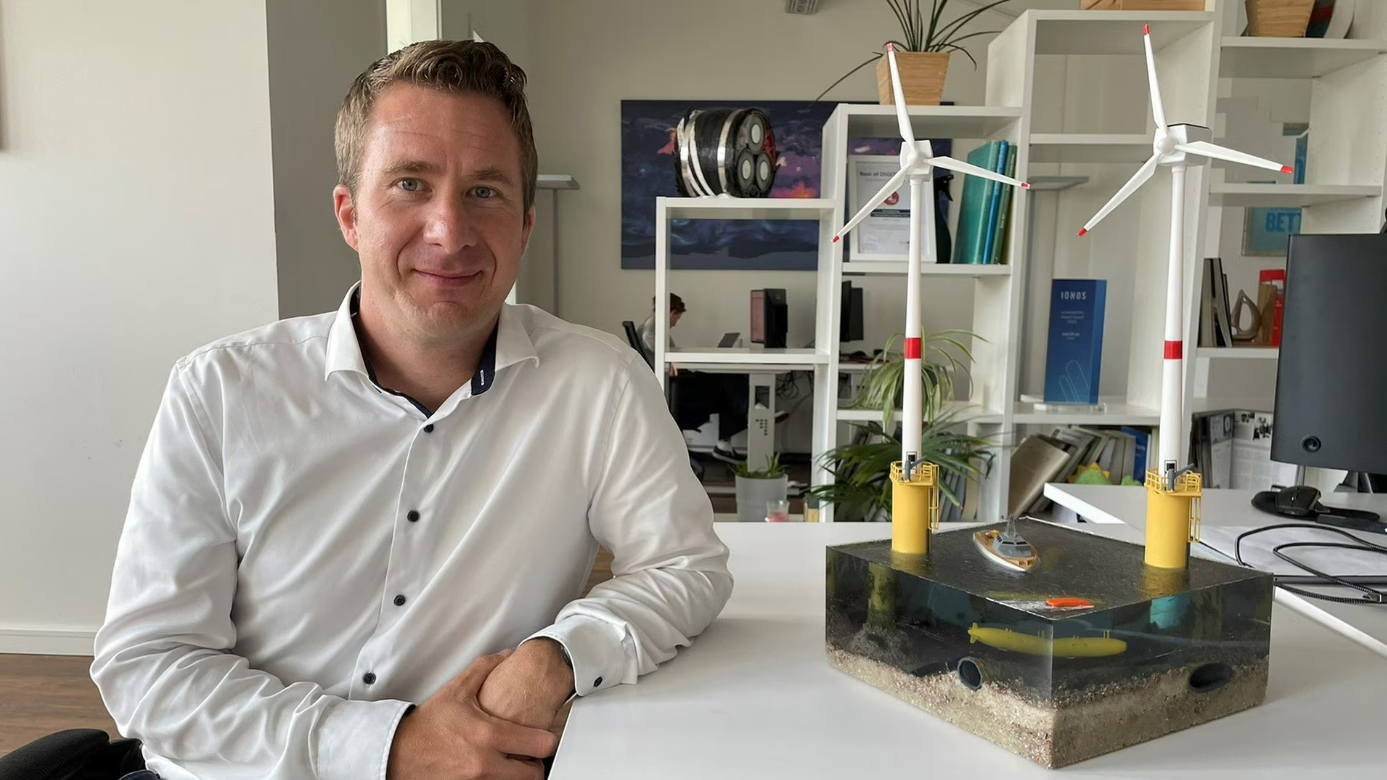Protecting Underwater Infrastructure: ARTE’s In-Depth Look at the Argus Project
Kiel, Germany. The German-French public broadcaster ARTE recently highlighted the work of north.io in its feature on the Argus project, an initiative...
Kiel, Germany – Protecting critical underwater infrastructure (CUI) remains a significant challenge, not just for Germany but globally. With the ‘Argus’ CUI project, the team at north.io is addressing this issue with advanced big data and AI technologies.
.jpg?width=650&height=488&name=IMG_2768%20(1).jpg)
Bastian Pöhls and Brit Hansen met Jann Wendt at the north.io offices at the Science Park in Kiel.
During today’s visit to the north.io office in Kiel, journalist Bastian Pöhls from the German public broadcaster NDR and his team captured the essence of the project and the work of the north.io team.
.png?width=650&height=366&name=Screenshot%202024-08-22%20172408dd%20(1).png) An interdisciplinary team of experts works at north.io on the Argus project.
An interdisciplinary team of experts works at north.io on the Argus project.
The resulting TV report provides an in-depth look at the project, complemented by insights from Henrik Schilling, a maritime critical infrastructure expert from the Institute for Security Policy at Kiel University (ISPK), featured in the Schleswig-Holstein Magazin.
Click on the image below to be redirected to the full report and video on the home page of the national broadcaster NDR.
Read the Official Argus launch press release:
https://news.north.io/en/argus-project-secures-2-4-million-grant

The Argus project addresses the significant challenge of protecting critical underwater infrastructure based on data driven solutions. With the already introduced TrueOcean platform of north.io, the first time an ocean big data technology is available that builds the basis for working and analyzing the tremendous amounts of underwater sensor data provided by e.g. multibeam, side scan sonar or hydrophones. During the Argus project the TrueOcean technology will be significantly enhanced for fighting the lack of highly scalable technological approaches for rapid and systematic inspection of underwater infrastructure. At present, data is gathered and processed by hand, making the process not only time-consuming and inefficient but also incapable of scaling to meet growing demands.
What sets the Argus project apart from other initiatives is its innovative approach to maritime security working specifically with raw ocean sensor data in tremendous amounts. While existing approaches use mainly satellite and AIS data, Argus goes further and fusions underwater data into the situational picture. On the one side it enhances the situational picture with underwater big data from a multitude of sensors, on the other side a system is developed for taking immediate action upon detection:
As soon as potential anomalies are detected near underwater infrastructure, a signal is sent to a pre-positioned autonomous underwater or surface vehicle. This vehicle is then directed by the software to investigate the situation at the critical underwater infrastructure in the most optimized way and provide highest resolution underwater datasets. This unique approach ensures a rapid response to potential threats, significantly enhancing the protection of critical subsea infrastructure.
This proactive and automated response system is a pioneering step in maritime security and demonstrates north.io's commitment to using advanced technology to protect critical assets. The Argus project isn't just about detection, it's about new big data driven approaches and immediate action, setting a new standard in maritime security.
Argus will provide the foundation for automated, data-driven monitoring and threat assessment of CUI. It will integrate a multitude of underwater sensors as well as satellite and vessel positioning data with critical infrastructure locations on a new generation of ocean data management platform. This platform will be a central tool for monitoring anomalies, conducting systematic risk assessments, and strategically inspecting potential threats.
Key Project Objectives:
Innovative AI-Powered Tools:
The project's first phase involves developing a new generation of an ocean data management platform featuring several AI-powered tools:
Successful Demonstration and Strategic Significance
Initial approaches to risk analysis have been already successfully demonstrated by winning the 2023 DataRun of the Federal Ministry for Digital and Transport of Germany, showcasing the potential of Argus to transform the maritime security domain.
Project Partners and Their Roles
As part of the mFUND innovation initiative, the BMDV has been funding data-based research and development projects for the digital and networked mobility of the future since 2016. The project funding is supplemented by active professional networking between stakeholders from politics, business, administration and research and by the provision of open data on the Mobilithek. Further information can be found at www.mFUND.de.
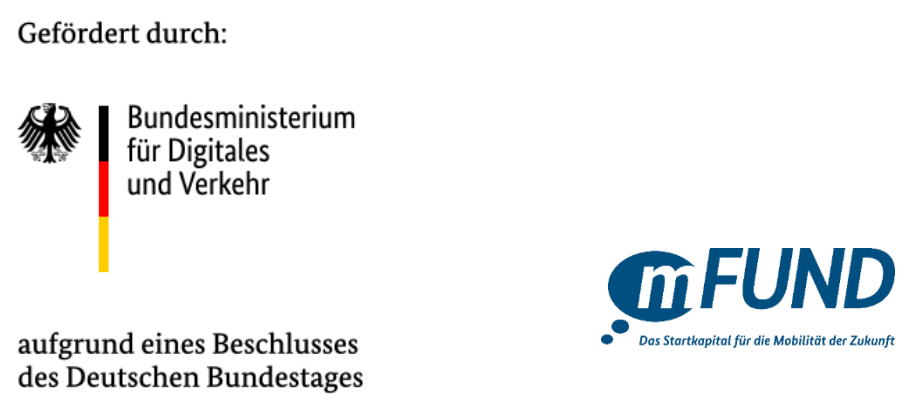
Images: copyright Bastian Pöhls / NDR
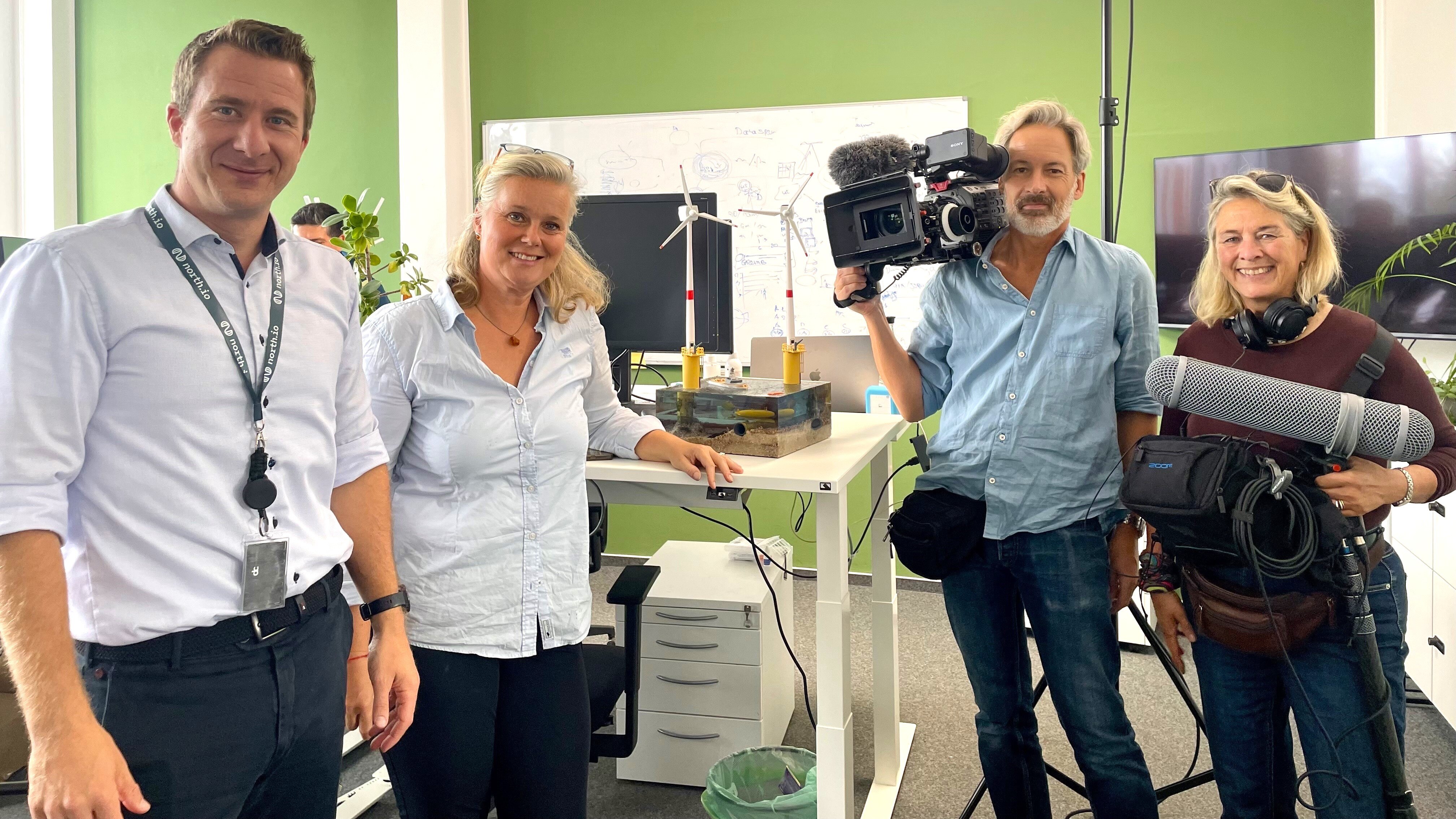
Kiel, Germany. The German-French public broadcaster ARTE recently highlighted the work of north.io in its feature on the Argus project, an initiative...
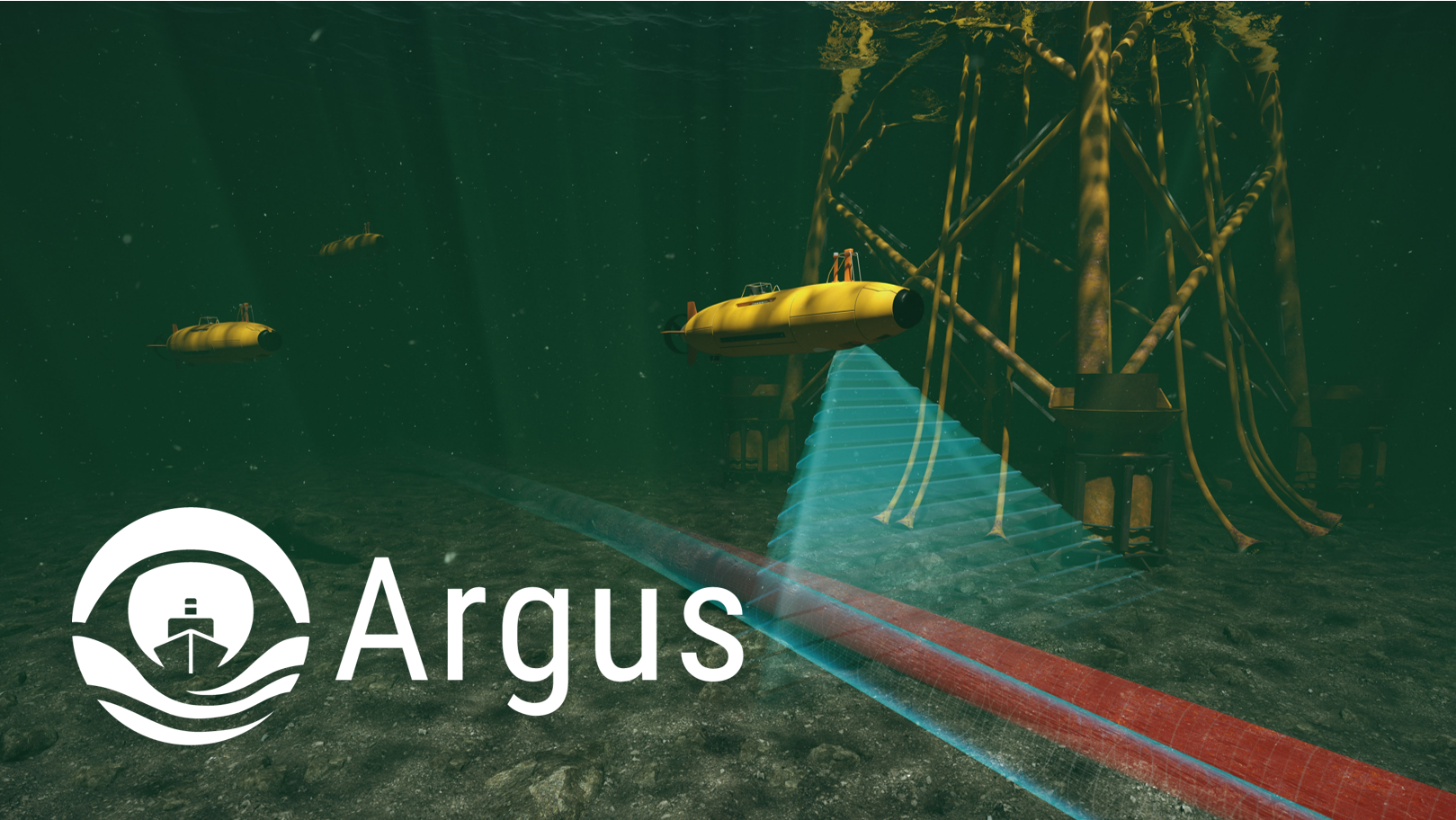
Kiel, Germany – Geospatial cloud specialist north.io has been awarded a €2.4 million grant for the "Argus" project for underwater big data analytics...
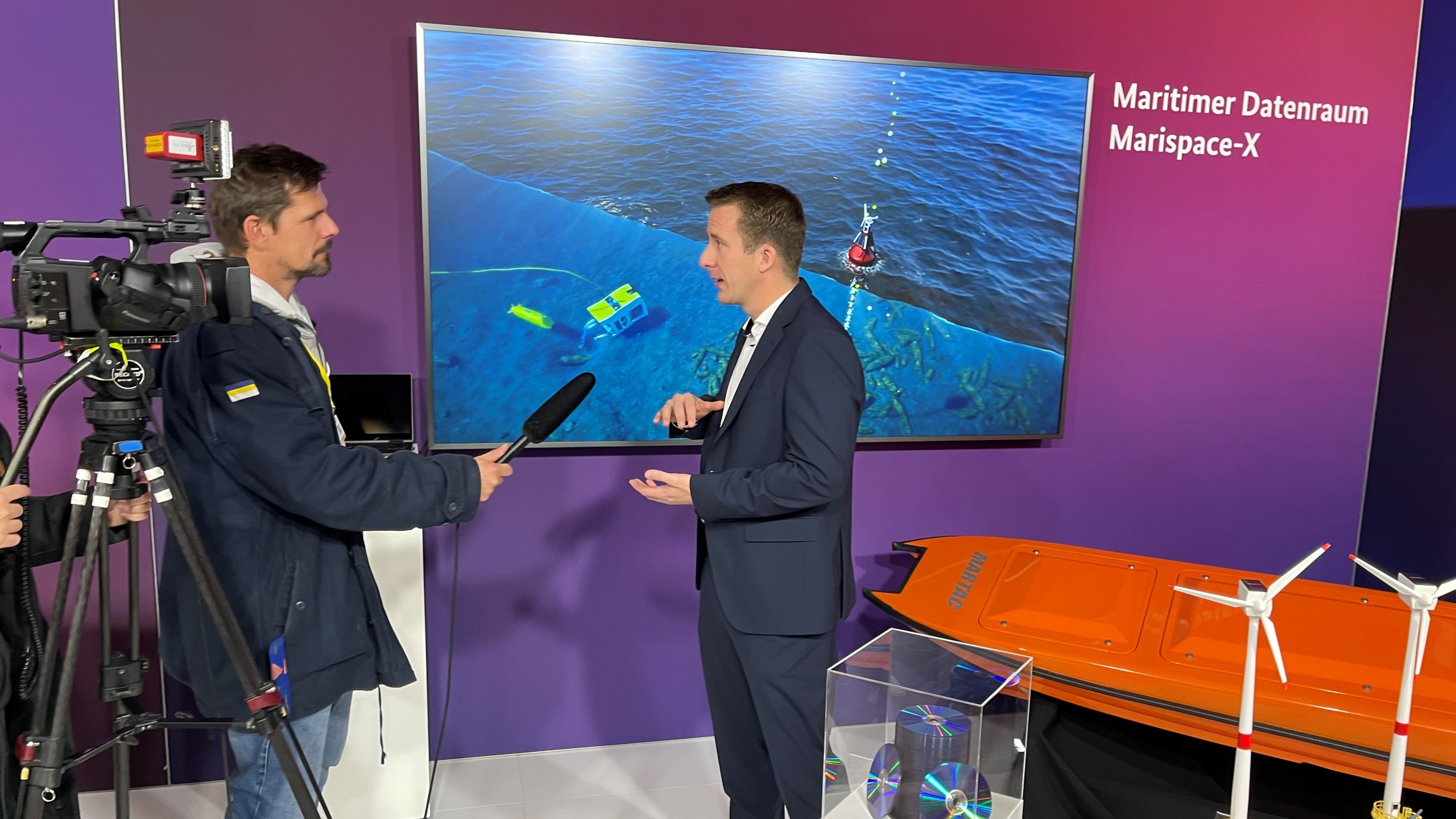
Kiel/Jena, Germany. At the German government's two-day digital summit on 20 and 21 November 2023 in Jena, Jann Wendt, CEO of north.io, will present...
.png)
Lisbon/Kiel. The TrueOcean data platform from German cloud-geospatial-data-specialist north.io has been officially selected to participate in the ...
